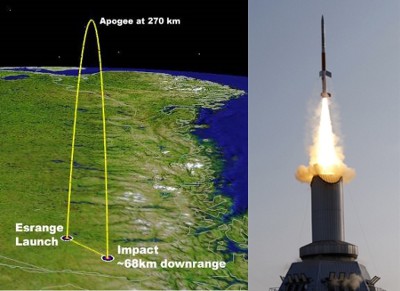News and Events
- Successful Demonstration of Hydrogen Innovation: RESR Technology Showcased on a Live Film Set
- Professor Fengzhou Fang was awarded a Prestigious Honorary Doctorate
- Dr Anna M Kelly, Appointed to the Fáilte Ireland Authority
- CDIC Automotive Design Competition 2024
- Aisling Ní Annaidh recognised as a pioneer in her field through an ERC Consolidator Award
- Scientists’ next-generation space materials blast off for tests on ISS
- SFI Industry RD&I Fellowships announced
- Inclusive XR 1.5 days Training Workshop: 17-18 June 2024
- ISRP symposium
- UCD-led space project receives over €7.9m from Disruptive Technologies Innovation Fund
- UCD Researchers awarded over €4m in ERC grants for Biomedical Engineering and Political Economy projects
- Congratulations to Xinhui Wang win the first prizes at the 26th Sir Bernard Crossland Symposium in all-Ireland (Republic of Ireland + Northern Ireland)
- ERC Starting Grants Awarded to UCD Researchers in Humanities and Engineering
- UCD's Livija Vasilenkaite - First Prize Winner #ThisIsEngineering2023
- College researchers recognised in UCD Research Impact Competition
- UCD Graduate Clíodhna Lyons named Automotive News Europe Rising Star
- Irish Government invests in 47 projects to engage and inspire the public about STEM
- Research to Literally Get Under the Skin of Things
- IMI project Screen4Care to speed up diagnosis and enhance healthcare for rare disease patients
- €9M joint investment for US-Ireland R&D Programme
- Helping People Understand and Mitigate the Spread of Aerosol-Born Infections
- Research teams chosen to find disruptive ideas for Irish Defence Forces
- Reducing the operational requirements of wind turbines with real-time downtime detection
- 2021 Archive
- 2020 Archive
- 2019 Archive
- 2018 Archive
- 2017 Archive
- 2016 Archive
- New Microneedle Platform Technology
- 5th UK & Ireland FOAM/OpenFOAM User Day
- Science Apprentice
- Neograft Teams with CÚRAM Research Group
- Ciara Giles Doran won a silver medal at SSRA16
- Fengzhou Fang
- Dr Peter Theobald will present research on novel material structures
- Image Guided Navigation in Airways - Monday 18th April, 1pm, room 204
- MME PhD takes pride of place in UCD's Women's GAA
- Traumatic Brain Injury seminar - Monday 7th March, room 204
- Industrial giant Bekaert launches University Technology Centre in UCD
- Engineers Journal to run series of articles from UCD
- 5th year student braves dragons on Hackathon winning team
- PhD student, Kevin Doherty, wins the IOM3 World Lecture Competition.
- UCD students win ESB Engineering Challenge…again!
- UCD getting ready for launch – MASER 13 rocket featured on SSW
- Presenting in the Dragon’s Den – Barry Brophy meets Bobby Kerr
- UCD to take lead on European Space Agency project
- Biomedical Engineering awarded EU funding for diabetes research.
UCD getting ready for launch – MASER 13 rocket featured on SSW
Monday, 22 August, 2016

UCD is leading the XRMON experiment in the MASER sounding rocket program which aims to explore the effect – by eliminating it – of gravity on metal solidification (casting).
MASER (MAterial Science Experiment Rocket) programme was started by SSC in 1985, initially in order to increase the flight opportunities for microgravity experiments after the Challenger space shuttle catastrophe. The first launch took place in 1987, providing 7 minutes of microgravity with almost 300 km apogee, and used of a guidance system which is compulsory for such high trajectories.
Since the start twelve MASER rockets have been launched from Esrange, with 4-7 experiments per mission. The flights have provided 6-7 minutes of low microgravity levels used as a tool for scientific research in various disciplines - such as fluid science, material science and bio science. Without the presence of gravity, different behaviours of processes and substances can be studied. Moreover, experiments in non-gravity conditions often help scientists to validate their theoretical models.
Read full article here: (opens in a new window)http://sscspace.com/maser-13